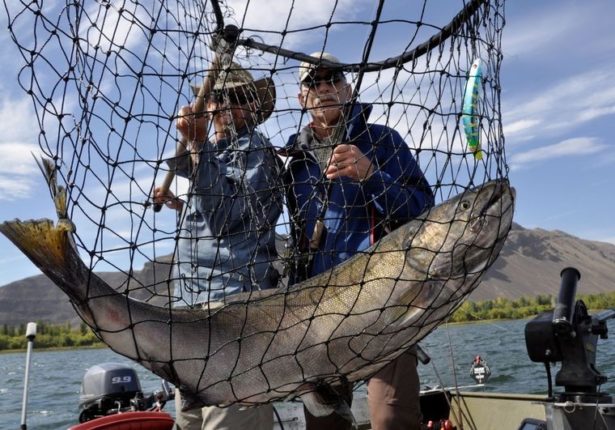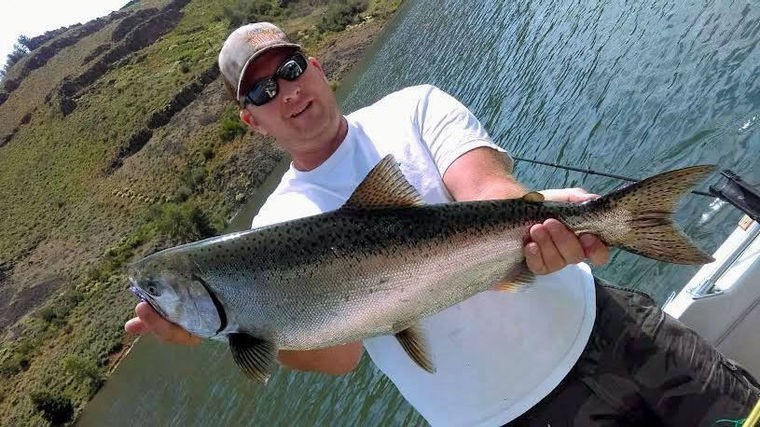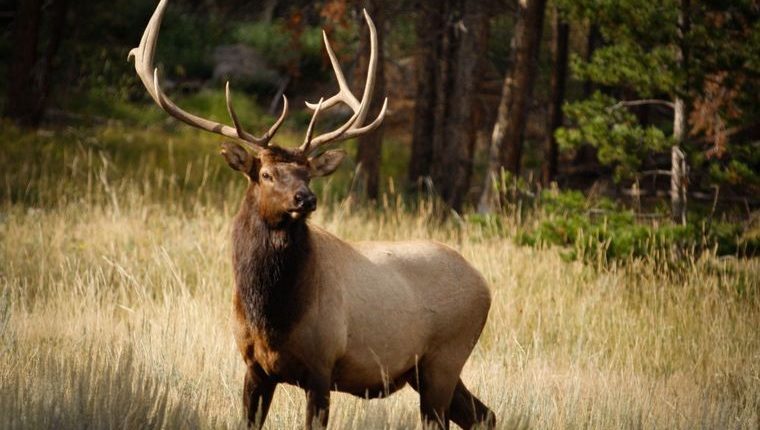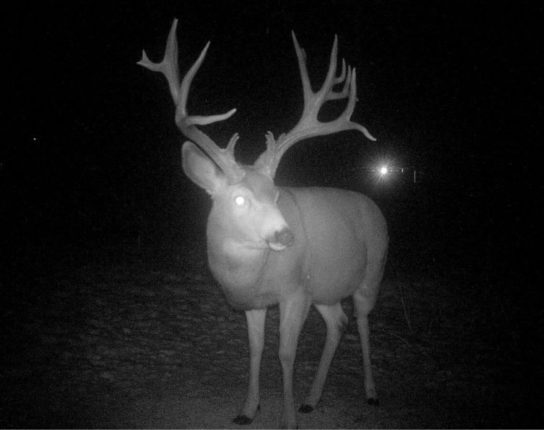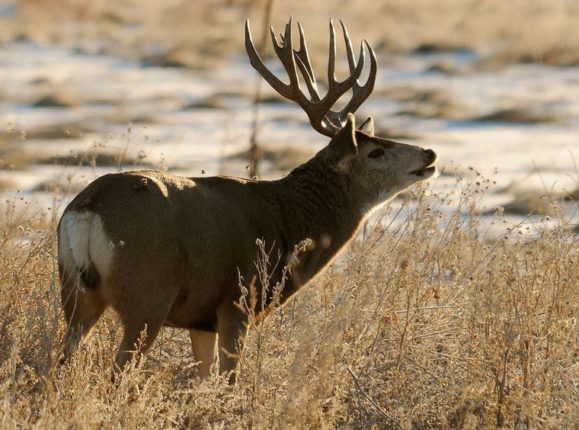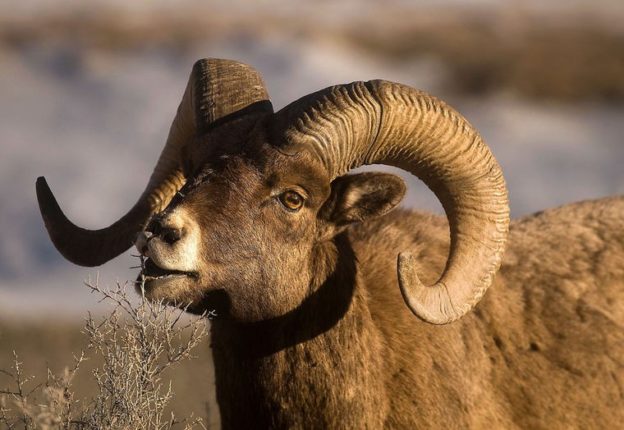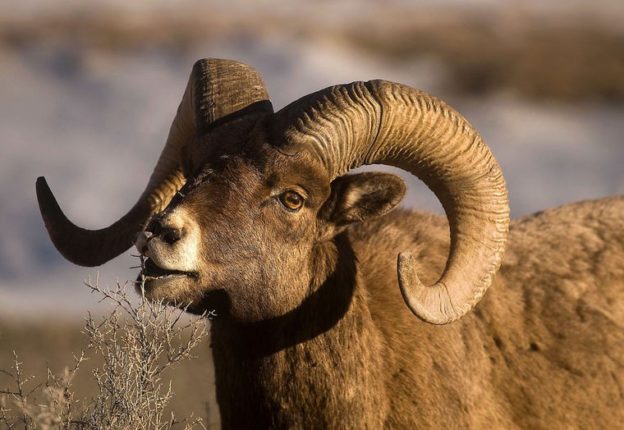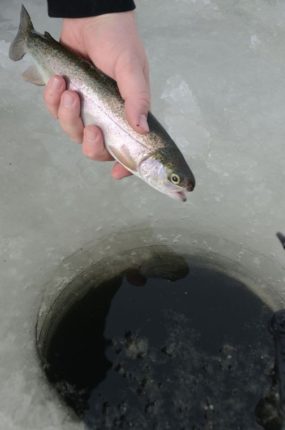Idaho Fish and Game Commission adopted a fall Chinook salmon fishing season to open August 18 on parts of the Snake, Clearwater and Salmon rivers.Commissioners approved the 2017 fall Chinook fishing seasons during their meeting in Bonners Ferry on July…
Author: By Mike Demick Idaho Fish and Game
Idaho’s Chinook salmon seasons to end July 30
Chinook salmon seasons on the Snake, Little Salmon and Upper Salmon rivers will close at the end of fishing hours on Sunday, July 30.
The closures to these fisheries are occurring because harvest objectives are being met and/or because the Chinook run has ended.
Although the spring/summer Chinook season will close, the Fish and Game Commission will consider a fall Chinook season at their July 27 meeting in Bonners Ferry.
More information will be available on Fish and Game’s website at https://idfg.idaho.gov/fish/chinook.
Controlled hunt results available, pick up tags by Aug. 1
Big game hunters who were successful in drawing controlled hunt tags for deer, elk, pronghorn, fall turkey and black bear have until midnight Mountain Daylight Time Aug. 1 to buy their tags.Applicants can find out if they drew a tag by checking the con…
Fish and Game seeking comments on proposed rule changes
Idaho Fish and Game is launching a negotiated rule-making process and wants to hear from the public concerning a series of proposed rule changes.
Summaries of the rule proposals include:
Nonresident tag limit and outfitter allocation in unlimited control hunts: Create authority for non-outfitted nonresident tag limits in unlimited controlled hunts and to provide for outfitter allocation in unlimited controlled hunts.
Bighorn sheep auction and lottery tags: Modify wording that restricts auction tag and lottery tag holders from hunting in Unit 11 during alternate years to “Controlled Hunt Area 11” to avoid having multiple tag holders from hunting in those portions of Hunt Area 11 that fall outside Unit 11 (i.e., Units 13 and 18).
Allow use of bait for purpose of hunting wolves: Develop rules to allow use of bait to hunt wolves in game management units and seasons to be set by Commission proclamation.
Prohibit use of trail cameras and electronic two-way communication as an aid to hunting big game: Develop rules to prohibit use of trail cameras, especially, but not limited to, livestream or other transmission of other real-time imagery, and the use of electronic communication (cellular phone call, texting, two-way radio communication) as an aid to hunting big game. This rule is not intended to prevent the use of telemetry or GPS collars on sporting dogs.
Revise provisions for special needs big game hunt and disabled veteran special big game hunt tags: Develop rules to establish an application period and process for awarding tags if applications exceed number of tags available. Currently, these tags are issued first-come, first-served. Consider restricting these tag holders from hunting in controlled hunts with five or fewer tags.
Additional information, including complete text of the proposed changes and how to submit comments, is available on the Fish and Game website at idfg.idaho.gov/comment.
The public comment period will run through July 26.
The Idaho Fish and Game Commission has authority to adopt seasons and administrative rules. Seasons are related to limits, size, sex and harvestable species and do not require legislative approval. Administrative rules include legal equipment definitions, controlled hunt requirements, allowable method of take, possession requirements, and tag quotas. Any administrative rule must be published in the Administrative Bulletin for public comment and must be upheld by the Idaho Legislature to become a final rule.
Big game controlled hunt drawing results are in
Hunters who applied for elk, deer, pronghorn, fall turkey and black bear controlled hunts can check online to see whether they were successful in the recent computerized drawing.Drawing results are now available at idfg.idaho.gov/CH.Applicants can ente…
Moose, goat and sheep controlled hunt results available online
Results of the drawings for moose, bighorn sheep and mountain goat controlled hunts are now available online.Hunters can find out if they were successful in drawing a tag by going to the Idaho Fish and Game website at idfg.idaho.gov/ch and enter their …
Another bighorn euthanized after contacting domestic sheep
A one-year-old bighorn sheep ram that mingled with domestic sheep near Challis was euthanized Friday to prevent the sheep from potentially carrying disease back to the wild herd. This is the third bighorn sheep removed from the same area on the edge of Challis since March 30.
Idaho Department of Fish and Game officials euthanized the yearling ram after receiving reports that it was observed inside a pen on private property with a small flock of domestic sheep.
Domestic sheep and goats often carry pathogens that wild sheep may be susceptible to and that can result in fatal pneumonia or other diseases. The greatest risk occurs when a wild sheep mixes with domestic sheep or goats and then returns to a wild herd, potentially spreading the pathogens to other wild sheep. In some cases, this can result in large-scale die-offs in wild sheep.
“We hate to have to take this action, but we believe it’s necessary to stop the spread of a disease that could devastate multiple herds of wild bighorn sheep,” said Hollie Miyasaki, Fish and Game bighorn sheep biologist. “We will continue to work with the landowner to prevent any more interactions.”
The Department’s 2010 Bighorn Sheep Management Plan provides direction that Fish and Game remove bighorns in a timely manner when they come in contact with domestic herds to prevent potential transmission of disease to other bighorn sheep.
Fish and Game officials have been, and will continue to work cooperatively with Idaho State Department of Agriculture, domestic sheep operators, and other agencies to maintain separation between wild bighorns and domestic sheep to ensure the state maintains healthy self-sustaining populations of wild bighorn sheep populations, while maintaining a viable domestic sheep industry.
Fish and Game received reports on Friday morning the bighorn was seen near domestic sheep. The ram was euthanized in the domestic sheep pen after he was observed in the pen within 20 feet of the domestic sheep for the second time. After the bighorn ram repeatedly entered the small domestic sheep pen, the most prudent course of action was to euthanize the ram to prevent risk of it returning to the wild herds and potentially infecting other bighorn sheep.
Samples were taken immediately after the sheep was euthanized, and the samples have been sent to a wildlife health lab for analysis. The domestic sheep continue to be tested.
For biologists to respond quickly and protect wild sheep, it is important for people to report interactions immediately between wild bighorns and domestic sheep or goats. Anyone who sees bighorn sheep mixing with domestic sheep or goats is asked to contact the nearest Fish and Game office, or the local Fish and Game conservation officer as soon as possible.
New year requires 2017 Idaho hunting and fishing license
Before heading out in the New Year, Idaho hunters and anglers are reminded to pick up a 2017 license.
Nearly all of Idaho’s hunting and fishing licenses, tags, and permits are sold on a calendar year basis, and they expire Dec. 31.
The only licenses or permit not sold on a calendar year basis are Idaho’s trapping license and Federal duck stamp. Both are valid from July 1 through the following June 30. This is because the seasons generally begin in the fall and end in the late winter.
An annual Idaho resident adult hunting licenses cost $12.75 and fishing licenses cost $25.75. Junior and senior licenses cost even less. Another option is a three-year license available for junior, adults and seniors, which saves a little money and time standing in line.
Licenses are available at Fish and Game offices, license vendors, by phone at 1-800-554-8685, or on-line at https://idfg.idaho.gov/. There is an additional service fee for licenses purchased online. Licenses for disabled hunters and anglers are only available at Fish and Game offices.
